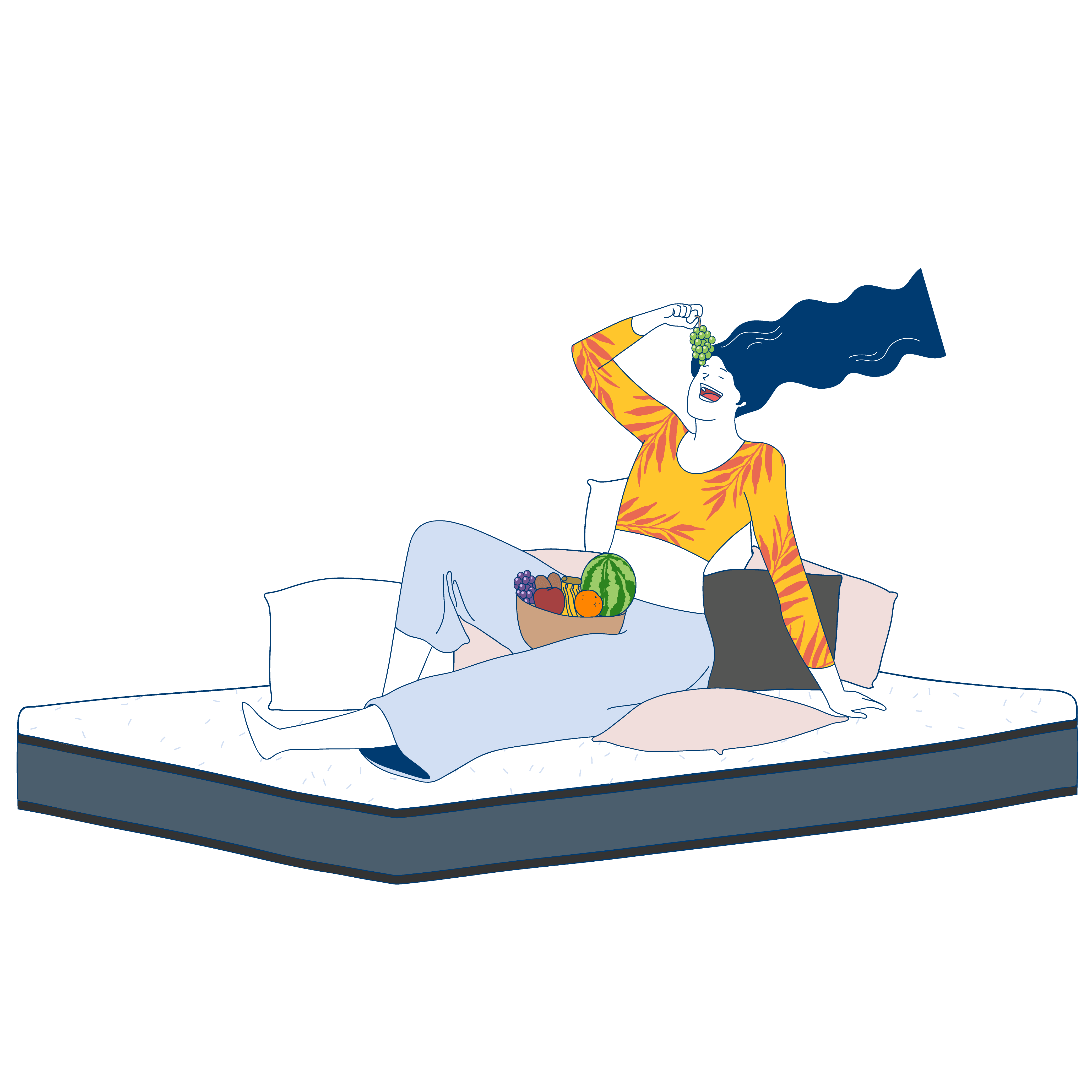Many elements influence our sleep quality. Nutrition plays a huge factor in this. Alicia, an Advanced Sports Dietician, spoke to us about how what we eat and when we eat can impact our sleeping habits.
I feel a bit of a fraud writing about optimising sleep. My sleep has been shocking for the last five years, but this isn’t due to my food choices. Rather our three sleep pirates – Mr R, Miss F & Miss M. Although, like these little additions, there can be components to your sleep that are out of our control. Adapting your nutrition is a simple strategy that can have a positive impact, what I have lovingly repeated as controlling the controllable.
How Can What We Eat Impact Our Sleep?
The body has neurotransmitters (chemical signals) that are associated with our sleeping and waking cycle. So, if we focus on the foods that affect these chemicals, we can improve our sleep.
We Are Here to Tell You That Carbs Are Good for Sleep.
Having carbohydrates included in your dinner has the ability to increase how much tryptophan crosses over to make serotonin, which then creates melatonin. As you may know, melatonin is our sleep hormone – so an excellent thing to be creating! Carbs have been shown to possibly improve sleep and reduce the time it takes to go to sleep. Carbohydrates include such things as grains, rice, pasta, beans, bread, fruit, yoghurt, milk and lentils.
What Is This Tryptophan?
Tryptophan is one of the amino acids – one of the building blocks of protein. As tryptophan is such an important part of the creation of melatonin, increasing tryptophan-rich food can help sleep. Options such as milk, meat, fish, chicken, eggs, beans, nuts, cheese and leafy veg are excellent sources.

Include All the Colour!
There is no doubting that fruits and veggies have plenty of positive health benefits, but one of these is for sleep. By including plenty of quality veggies and fruit in your days, this has a positive impact on managing inflammation. Alongside this, the phytonutrients in these foods may help with sleep – with most studies being done on tart cherries and kiwi fruit!
Is a ‘Nightcap’ a Positive?
The impact of alcohol on sleep is a little mixed. Although it can help us fall to sleep faster, alcohol reduces how much of the deep restorative (REM) sleep we get – but increase the amount of non-REM (lighter) sleep we have. It is because of the negative impact on REM sleep that it is important not to think of alcohol as a sleep aid.
How Much Coffee?
I don’t think it will shock you that caffeine can impact sleep. However, the truth is that the impact of caffeine is different to everyone. Some are very slow metabolisers of caffeine – meaning that caffeine stays in the body for a long time. Whereas some are fast metabolisers – I think we all know that person that seems to be able to drink coffee all day with seemingly no impact!
As caffeine is a stimulant, try and limit caffeine in the afternoon and the lead up to bed. For most, it will be increasing the time it takes to fall asleep and as such, reducing your total sleep time. Even if you feel you can still fall asleep ok, it can still be impacting negatively on your sleep quality and reducing melatonin.
Chrononutrition – Considering the Time You Eat
A big word yes, but this is about eating according to our circadian rhythm. Things like night eating or shift work can throw out the metabolic clocks in our organs. With this, there isn’t an exact science, but there is emerging evidence that eating to a time-restricted window – e.g. not eating through the night – can improve overall health and help train your circadian clocks.
Hopefully none of these things feel overwhelming or unachievable. As with anything food related, you can find opportunities for improvement while acknowledging that imperfect progress is better than inconsistent perfection. Reach out for an initial assessment with our team if you would like to make some progress with your nutrition but needing some guidance on where to start.
About the Author
Alicia is an Advanced Sports Dietitian and cofounder of Compeat Nutrition – a nutrition tech that has redefined how you work with a performance dietitian in your home. When she isn’t chasing her three young kiddies, she is also the lead Performance Nutritionist for The Matildas.



